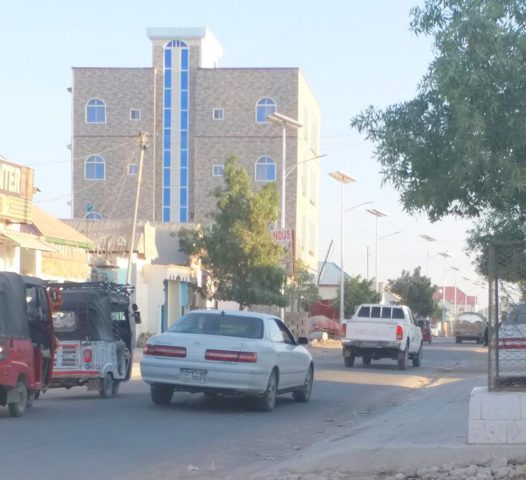
“I hope you will anchor in this town where peace had anchored”, a speech by Bulqaas at International Community visit to Garowe in 1993.
“Garowe was chosen as the capital city of Puntland State because it is an oasis of peace and the home of tolerance society”. Mr. Mohamoud Ismail, conference participant at Garowe Consultative and Constitutional Conference, August 1998.
City of Peace and Tolerance: Garowe city is one of the very few towns in Somalia spared from the gruesome consequences of the Somalia’s tribal civil war. The city has enjoyed relative peace, security, economic growth and development in the last 28 years. It has drawn and welcomed thousands of Somali people fleeing war and famine in the south who are attracted by its security, better living conditions and employment opportunities. The present population of the city is estimated to be over 300,000 people.
Soon after the collapse of the Somali central government, the city became the first Somali town to restore rule of law and establish local authority with a district council and the election of its first post-civil war Mayor, Mr Abdi Saleeban Cali (Gaandaa) in 1993. In August 1998, the city was designated to be the capital city of the newly formed Puntland State of Somalia. This declaration heralded an era of construction and architectural renaissance, the arrival of large influx of people, new businesses and economic boom. In the 20 years of Puntland existence, the city’s land area has tripled and its design and layout is transformed radically. It had become a magnet for Somali professionals, creative entrepreneurs, academicians, intellectuals and families who contributed enormously to its present vibrant metropolitan life.
Garowe city’s influence extends beyond the boundaries of Puntland State. The city is an important hub for political and social change in Somalia. It had hosted very important conferences to reunite the country and determine its future political structures. Many people call Garowe city “the birthplace of new Federal Somalia”, a name synonymous with the struggle to rid Somalia of the last traces of tyranny and remnants of people with centralist tendencies, the efforts to heal the wounds of the civil war and the move towards inclusive politics, fair power and resource sharing and consensus decision making.
Despite the city’s growth and progress, many people argue that it has not reaped fully the benefits of its status as the capital city of Puntland due to incompetent, ineffectual, and corrupt local authority leaders. Garowe is one of the most expensive places in Somalia to live in. There is nothing to be proud of its rudimentary social services such as its only one run-down public hospital. Garowe General Hospital exists but a name, a stark and shameful reality brought home by the recent fire incident at a petrol station and surrounding neighborhood, as it was unable to provide emergency lifesaving treatment and care to victims. The serious cases had to be evacuated by air to Mogadishu’s Recep Tayyip Erdoğan Hospital.
In 2006, Puntland government enacted law no. 7 which set out strategic policies and plans to delegate power to the districts and democratize the process of selecting local district council representatives. The law no. 7 formed the basis for the introduction and rolling out of local district councils in Puntland, but it has never been fully implemented throughout the State as very few towns succeeded to establish local district councils. Another problem with this law lies in its undemocratic directions to allow clan elders to select local council representatives from their respective clans.
The work of the local district councils is always mired in bickering, accusations of power abuse and corruption, infighting and political interference from ministers which lead to a total breakdown of collaboration among the council representatives that ultimately result in the suspension and dissolution of the council by Puntland president. No district council representatives have ever successfully completed its term of service.
There are questions over the use of law no. 7 to intervene and dissolve local district councils. Consensus is emerging among civil society groups for an urgent need to reform law no.7, change the current undemocratic system and pave the way for free and fair one man one vote democratic process to elect local council members.
In a series of articles, Puntland Mirror will report on the failures and ineptitude of Garowe’s past successive Mayors with compelling evidences on the shocking levels of dereliction of duty. We will examine the incompleteness and drawbacks of law no. 7, Puntland’s local government policies and procedures, the devious justifications and constitutionality of the use of Law no. 7 to disband local council’s representatives. We will conclude the series with an article outlining the personal qualities, education and experience of the ideal local district council representatives and Mayors
Puntland Mirror’s Chief Editor Abdi Omar Bile contributed to this article.

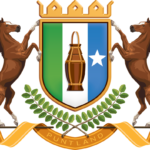
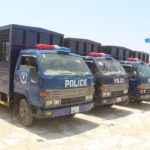
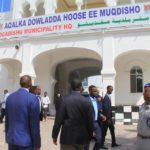
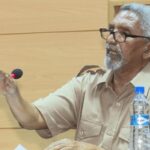
Be the first to comment